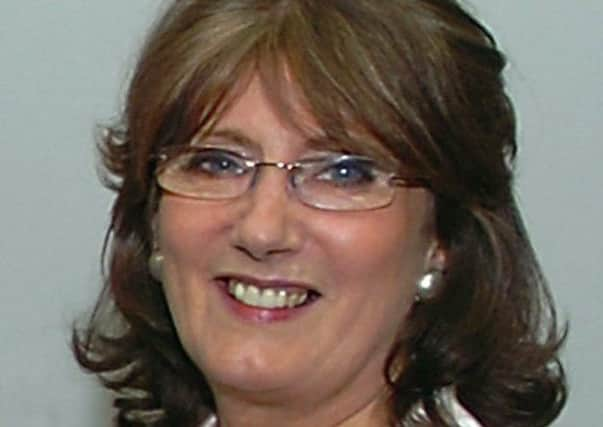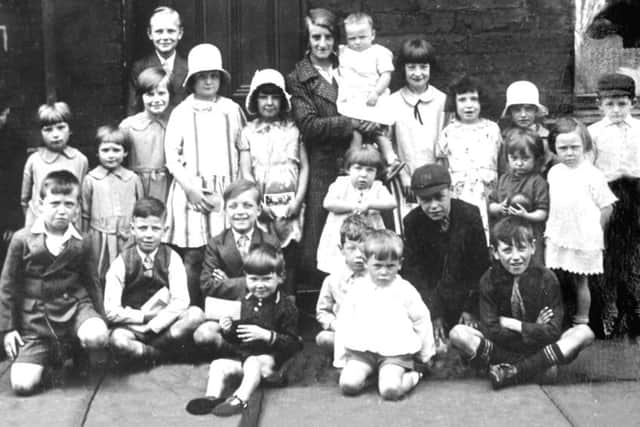The Nostalgia column with Margaret Watson - the slum clearance programmes


It wasn’t easy for people to leave all their friends and neighbours behind to be re-housed on estates they had never seen before.
But it seemed harder for my family because we were also leaving our church behind, and for a large Catholic family of Irish descent, church meant everything.
Advertisement
Hide AdAdvertisement
Hide AdFor my family, church wasn’t just somewhere to go on Sundays, it was somewhere we visited most days of the week for Mass, Benediction and Stations of the Cross.


When I was a child there were lots of things we didn’t have because we couldn’t afford them, but one thing we always had plenty of was our unwavering religious convictions.
We lived and breathed our faith, not only on Sundays but every minute of the day, bowing our heads when the name of Jesus was spoken and making the Sign of the Cross when a funeral hearse passed by.
At playtime, when the Angelus bell was rung, we stopped whatever we were doing to bow our heads to say the Angelus prayer.
Advertisement
Hide AdAdvertisement
Hide AdOur beautiful church with its candles, incense, flowers, stained glass windows, embroidered altar clots, statues and crucifixes, was a refuge to me as a child, especially after my father died when I was nine years old.
Churches were never locked – not even throughout the night – which meant we could go in to pray anytime, and the priest knew nothing would be stolen or damaged.
Our church in Batley Carr was next door to the school I attended, and at playtime I used to sneak in to sit down and drink in the peace and beauty surrounding me.
We were taught to say our prayers, morning, noon and night, and we always thanked God for the food we ate.
Advertisement
Hide AdAdvertisement
Hide AdWe also believed (I still do) that we had a guardian angel who watched over us, and I am sure that much of my strength and optimism in life came from believing this.
Even when our dad died when he was only 49, we never despaired because in our hearts we knew he was still with us in spirit, and that one day we would be reunited with him in heaven.
Our faith might have been different from that of many of our neighbours, but whatever faith any of us followed, the whole community did share a moral code which helped us all survive the hard times.
Catholics relied on a faith which was rich in symbolism and liturgy, while those who attended the local chapels, shared a faith which was Bible led and more practical and down-to-earth than ours.
Advertisement
Hide AdAdvertisement
Hide AdI suppose we Catholics lived with our heads in the air while our Methodist friends had their feet firmly on the ground, but we all got on together.
They worshipped in unadorned churches which to me smelled of old hymn books and carbolic soap, very different from ours which smelled of burning incense and candles.
But I always felt we shared the same basic belief, something which helped us all get on, and I cannot remember any of us falling out over religion.
Me and my sisters loved going to the chapels with our friends because you didn’t have to spend as much time on your knees as we did in ours, and the services were livelier and the hymns more cheerful.
Advertisement
Hide AdAdvertisement
Hide AdMy dad always felt there was a downside to this because the people who attended these churches were not allowed the pleasures of a glass of beer and a flutter on the horses which was heresy in his eyes.
When I lived on The Flatts, I had friends from all backgrounds and all beliefs, including some who had none, but they were good people who knew the importance of working for the local community and instilling in their children right from wrong.
During slum clearance, a lot of churches were also demolished, like Springfield Congregational Church in Halifax Road, Granville Street Methodists on The Flatts, St John the Baptist Church in Boothroyd Lane and St James’ Mission in Vulcan Road.
The people who had worshipped there were dispersed to estates all over the place but, of course, their churches and their clergy didn’t. Whether you went to church or not, and many didn’t, we seemed surrounded by good people who cared for their community.
Advertisement
Hide AdAdvertisement
Hide AdYou didn’t have to go to church to be a good citizen, but you did need to care for the village where you lived and respect other people’s way of life.
We were a united and friendly society where children of all faiths were brought up to respect each other’s belief, and we really did care for our neighbours.
The picture above taken in Halliley Street on The Flatts, gives us a glimpse of the togetherness which existed in those days.
Sadly, these families were split up when the man from the housing department gave them keys to their new homes in Thornhill, Dewsbury Moor, Chickenley and Raventhorpe. I wonder where they are now.
Please contact me on [email protected] with your memories of the town.